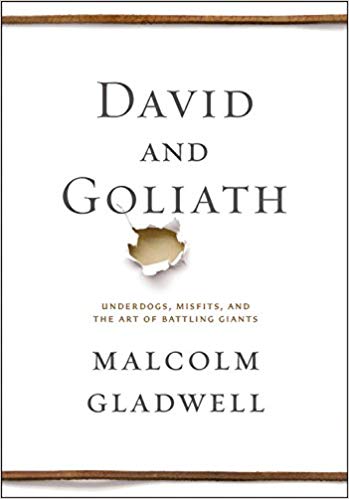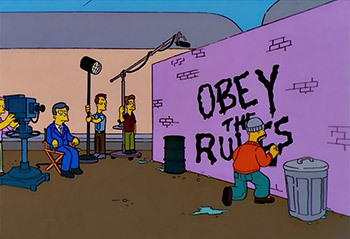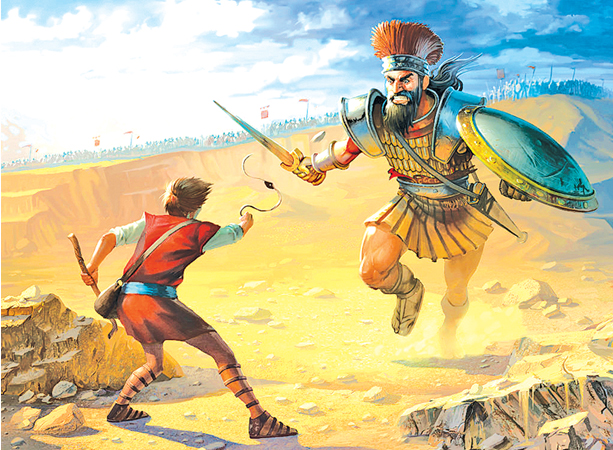
Hardcover: 320 pages
Language: English
- ISBN-10: 0316204366
- ISBN-13: 978-0316204361
Buy Here : Amazon.in or Amazon.com
Malcolm Gladwell, in his book ‘David and Goliath’ covers the story of unlikely success. Instead of the cliche of how persistence and hard work pays, he analyzes the stories in depth and brings about how the underdogs chose a different path to win the game and how this learning can be used by us all.
The Story and its meaning: David and Goliath
We have often been told of the biblical story ‘David and Goliath‘ has how the impossible was accomplished when Goliath, the giant was slayed by David the shepherd boy with just a sling. Malcom Gladwell analyzes the story in depth and shows us the weakness of the giant. The slow moving Goliath had tremendous advantage in a traditional battle field. However, David by choosing his battle and weapon won the fight even before he got to the battle field.
The powerful and the strong are not always what they seem.The same qualities that appear to give them strength are often the sources of great weakness.
With this new lens, he goes about analyzing a lot of unlikely successes. In hindsight and with the new perception, the success indeed seems obvious.
Advantages of the Disadvantages and Disadvantages of the Advantages
In this section, Gladwell covers three stories – how a team with little talent went a long way by playing the game differently, how smaller class size does not necessarily improve learning and how choosing the best college you can get into may not be a good decision.
I would just explain the third story as it most relevant and relatable. When one chooses the best college one can get into, we often find ourselves in the company of peers who are lot more brilliant and academically ahead. The feeling of being behind in a class of gifted people often makes the students lose confidence and do worse than they would otherwise have done. As against students who had taken their second or third choices had performed significantly well, not only in top of their class but far ahead of their peers who had similar scores but taken up better colleges (dropout %, Avg No. of papers published etc)
The smarter your peers, the dumber you feel; the dumber you feel, the more likely you are to drop out.
Gladwell substantiates this by citing data on how positive affirmation action (for Eg: Reservation in higher educational institutions) often significantly harms the people who it is supposed to help. The conclusions are counter intuitive and controversial. But it is definitely a perspective that should not be ignored in choosing as an individual and also choice architecture for the policymakers.
Desirable difficulty
In this part, Gladwell covers how certain people with serious learning disabilities like dyslexia, compensate for their difficulty in learning by improving significantly other compensatory skills such as listening, memory and recall. This often puts them at a significant advantage over others in similar fields as they stand out easily. Gladwell here gives examples of dyslexic lawyer who compensated for his reading difficulty with listening and presentation skills. He also chose arbitration over corporate law to play on his advantages.

Another example that Gladwell covers here is that of poverty and wealth. Growing up poor has certain disadvantages that brings with it. But so does growing up very rich.
Money makes parenting easier until a certain point – when it stops making much of a difference.
Beyond a point, it can be even be destructive as it kills ambition. We all know of wealthy brats who have ruined the wealth built over generations in only a few years.
Wealth contains the seeds of its own destruction.
So in this case, we may consider limitation in resources may be advantageous to the upbringing of a child. The difficulties give the child the ambition and ability to strive for a better tomorrow over a child who has nothing to work towards.
Limits of Power
We often think of authority as a response to disobedience, however, disobedience can also be a response to authority.
Gladwell covers in detail the multi-year conflict in Northern Ireland between the Catholics and protestants. The British army’s approach exacerbated the conflict rather than solved it. I read this section around the same time Article 370 was abrogated in Kashmir. So I was curious about how a conflict between the government and rebellious public are best handled.

Gladwell says people should believe that the authority has their good in the mind. It is when the authority is accepted and obeyed. When the basic trust and confidence is lacking, every action of control by the authority fuels the rebellion. With this framework, I can see that Indian Govt planned and executed the change well. the extreme restraint by the army to stone pelters also made sense. This was also the framework in which Gandhiji used the disobedience movement to challenge the British Kingdom with no weapons.
Critical Review:
What Gladwell has been accused of in many of his books including this one is that he cherry picks his facts to fit a narrative. He uses narratives sometimes as an alternate and not as a supplement to facts. Some conclusions are far fetched.
Infact, even some of his theories are over extended. He spends a whole chapter discussing the class size, of how less than 20 can be as harmful as more than 30. The smallest class size I have studied in was 22 and largest 180. I can’t say I learnt better in one over the other. In my experience, students initiative and interest together with innovative teaching methodologies, committed and knowledgeable teachers are vital factors for learning. Class size isn’t even a critical factor. His social theories are probably meant for US and other first world countries. As someone from a developing country, many of the serious issues look frivolous to me. We have bigger problems to solve here in India, before we can worry about class sizes, quantum of punishment etc
Conclusion
The counter intuitive perspective in the age old stories and holes in modern thought process is refreshing. He has been a great story teller and narrator as always. An intellectual read but take it with a grain of salt.

We know you love books. We would you like to give two FREE audio books. Grab your trial Audible Membership with Two Free Audio Books . Cancel at anytime and retain your books.

Explains why so many small companies think past the status quo, do disruptive things and overturn the giants.
thats another great example of underdogs. Nitin Kamath of Zerodha, India’s largest broking firm said he is not afraid of the big brokerage firms but of the guy working in his garage. Amazon too was started in Jeff Bezo’s basement only 25 years back 😀
Very nicely written Priya.
thanks Subhendu 🙂